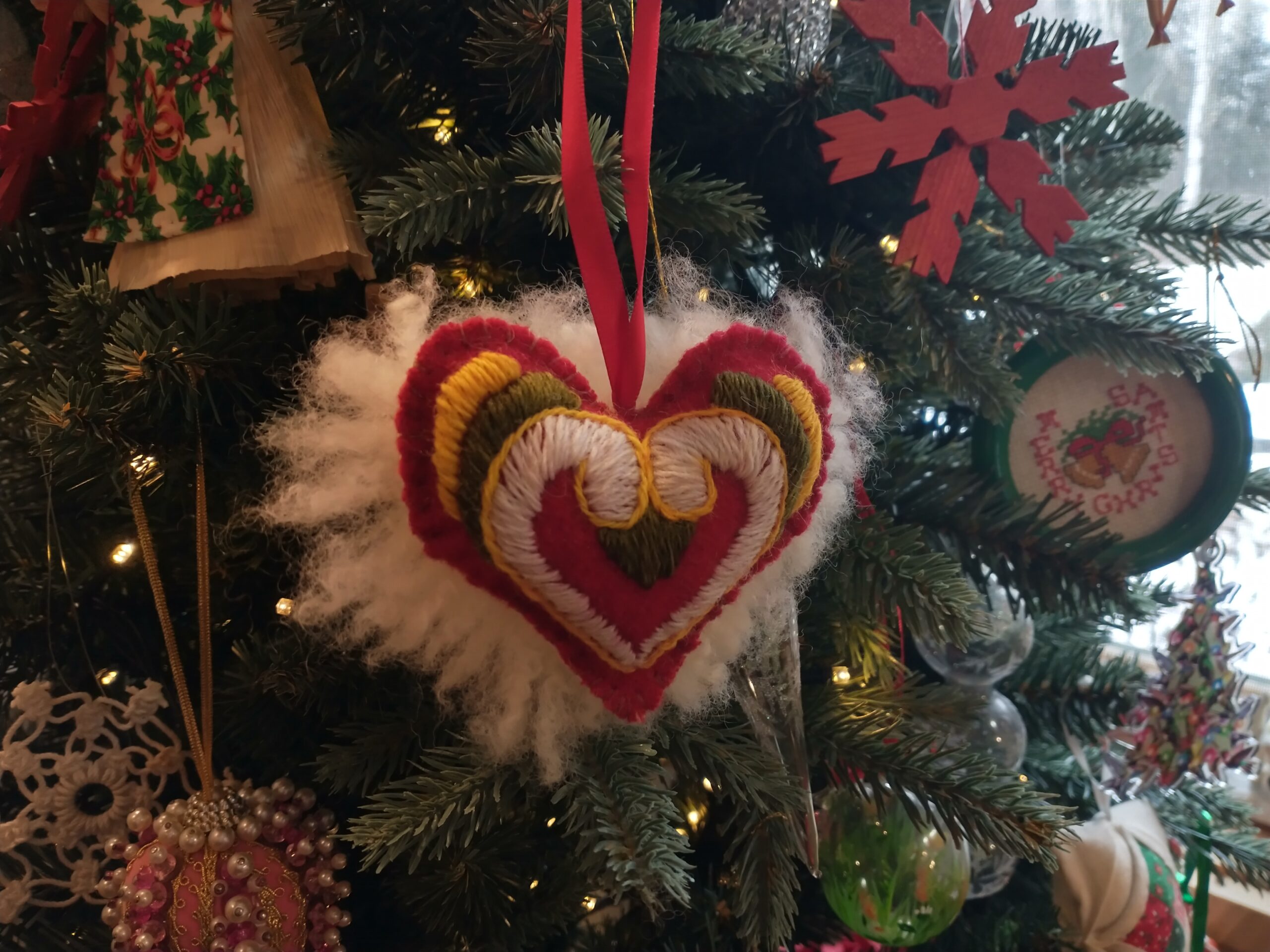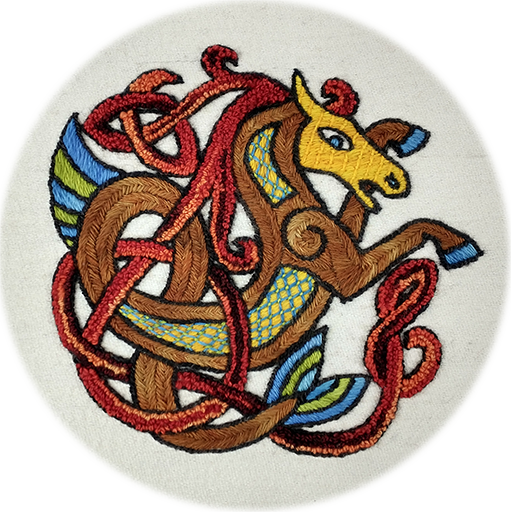Hidden Odin and Spider Loki

Many folktales are much older than they appear, capturing and preserving antiquated treasures like drops of sap turned to amber. Sometimes, they just need a good polishing for us to see the prehistory hidden within.
When I first heard this German folktale (variations of which are also found in Poland and Ukraine), I was charmed by its humor—a just-so story, where we learn how tinsel was first made and why you should have a spider ornament on your Christmas tree. But that was just the shiny outside. Underneath was a much older memory, waiting for the right eyes to see.
I love telling stories during the fiber arts classes I teach, and this is a lovely one to bring out for the holidays. It wasn’t until I was in the middle of telling it that I realized oh! And OH! This is all rippled reflections of something much older than Christmas.
Christianity is renowned for being a chameleon when it was new and spreading north into Europe. The monotheistic religion had an incredible knack for rebranding—merging goddesses into Mary or saints and reworking holidays. Keep your bunnies and your egg painting for the spring holiday, we’ll just change what they mean! You like holly, we can rework that into crown of thorns ideology! At Yule (Winter Solstice), it was long a tradition in the north to haul a living tree into the house. This was a reflection of Yggdrasil, the World Tree, whose leaves never withered—an attribute which has left some scholars arguing that perhaps she is a spruce rather than an ash tree, but we’ll leave that debate for another time.
We find such a spruce in the house in this story, where a poor family prepares for Christmas. The mother has worked diligently to decorate the tree, so once the little ones awaken, they can marvel at its glory—one tiny moment of pure joy and happiness in their otherwise grim lives. But her plans are thwarted by a different kind of glee.
One must remember this is from a time when houses were built quite differently from what most of us experience today. Inglenook fireplaces take up one whole side of the room, so big you can walk into them! Before chimneys, fires were in the middle of the room, with louvers in the ceiling used to let the smoke escape. While kitchens like these undoubtedly had many spiders living in cracks and fissures, each one was supposed to have its own resident spider, what in Sweden is your “House Loka.” Be nice to your Loka, and you will have good fortune.
Loka is the Swedish variant for Loki, the trickster god who can shapeshift, and nothing excites a trickster more than novelty. The spider in this poor family’s house was fascinated by the decorated tree, crawling all over it—up and down, spinning webs as it went. By the time the spider had satisfied its curiosity, the beautiful tree was entirely coated in dusty cobwebs.
St. Nicholas came, a benevolent soul bearing gifts. This is a thin veneer for another member of the deities once worshiped by Germans, Danes, Scandinavians, and others of proto-Norse descent. All we need to say is he came with a wide hat, a cloak studded with stars, and his hair combed over one eye, and this would be Odin, who has a habit of traveling about to test the hospitality and kindness of strangers—bestowing gifts or boons on those who treat him well. And woe if you don’t!
But Odin could not stay in the tale, not with Yule rebranded as Christmas, so Santa will do for his name now. And when St. Nicholas sees this tree all covered in dusty webs, he knows the poor mother who tried so hard to bring joy to her children will be devastated. He waves his hand over the tree and turns the webs to glittering tinsel.
He does not punish the spider, of course he wouldn’t. No trickster could help themselves at such a sight. Instead, he turns the situation into something even grander than it had been before, rewarding the woman’s selfless effort to bring joy and comfort to the innocent.
So, now you know the story of the origin of tinsel, and you might look at your house spider twice next time. Remember to be nice to your Loka, for tricksters can bless as well as curse.
